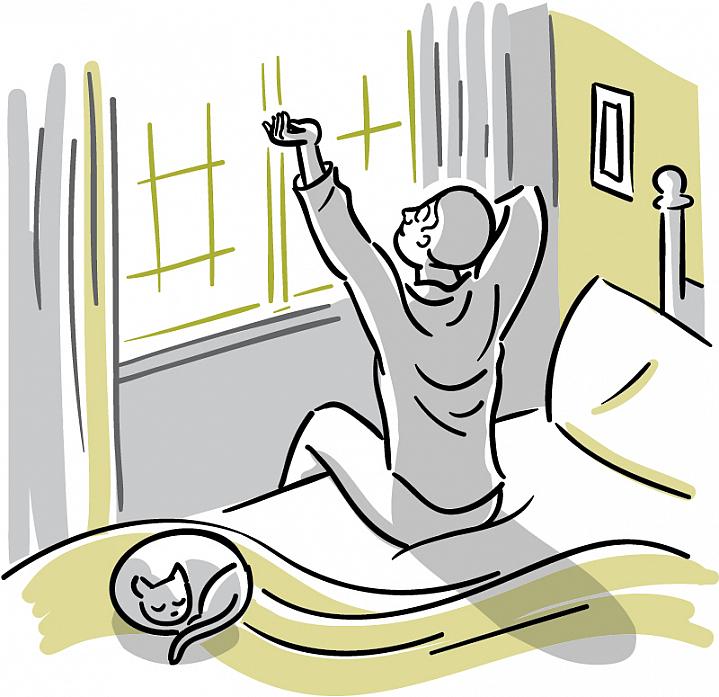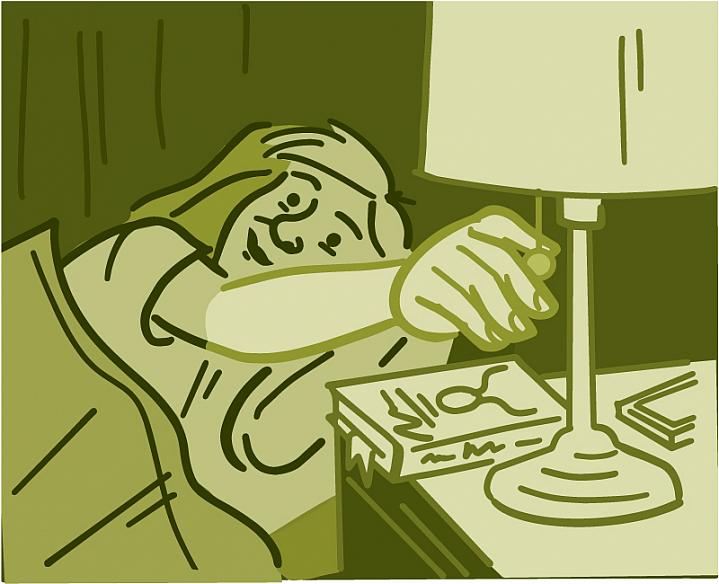Impacts of a Good Night's Sleep
 |
"There has been decades of research showing that poor sleep health is a major causal factor for either the onset of or worsening of physical and mental conditions."
Sleep is really a public health matter. It is a health imperative."
"Historically, we have been neglecting our sleep quite seriously and it is clear now that this has massive impacts on a lot of areas in terms of physical health, mental health and general functioning, including productivity in the workplace. There are a lot of different aspects of life that are affected by sleep."
"We know that sleep contributes to either the onset or worsening of physical and mental health conditions and we know that fixing sleep is also improving these health outcomes. Trying to fix sleep is a modifiable factor to improve health."
 |
"For a long time, the sleep community has been pretty vocal about the damage that daylight time is causing. Not only are we artificially shifting the time, we are not just gaining or losing an hour, we are also messing up the internal clock in our brain that keeps time. The whole idea was to save energy during wartime. This is no longer a valid argument."
Dr. Rebecca Robillard, associate professor, School of Psychology, University of Ottawa
Insufficient sleep has been identified as a causative of, or for worsening chronic physical conditions, including heart disease, Type 2 diabetes along with mental illnesses like depression and anxiety. It can even lead to obesity. It has links to pregnancy complications and is capable of undermining other practices for good health such as exercise and diet. Dr. Robillard, a scientist in the sleep research unit at the Institute on Mental Health at the Royal and co-chair of the Canadian Sleep Research Consortium, feels not enough attention has been paid to lack of adequate sleep and its consequences.
It is her opinion that there is a long-overdue recognition of insufficient sleep as a public-health issue, which it should be. The Canadian Sleep Research Consortium in March is scheduled to assist in the organizing of Canada's first national Sleep Week in an effort to draw attention to the vital importance of sufficient sleep for people of all age groups. Researchers hope to produce a live map to indicate how people across Canada are faring in their need to have proper sleep patterns nightly, hoping the public will respond by tracking their sleep habits.
Researchers in 2015 estimated that 23.8 percent of Canadian adults reported nighttime insomnia. That number is now closer to 40 percent, a 2021 survey reveals. Reports revealed that 6.4 percent of Canadians in 2015 and 2016 were diagnosed by a health care professional with sleep apnea, along with insomnia, the leading sleep disorder among Canadians. Sleep deprivation has significant widespread health, social and economic consequences on health.
Researchers feel that governments would do well for the health of the general public by cancelling the twice-yearly imposition of daylight-saving time, known to contribute to various health and safety issues that erupt in the immediate days following the universally disliked time change, into longer term health impacts. Sleep researchers would ideally like to see a return to permanent standard time.
 |
Increases in heart attacks, strokes, pregnancy issues, traffic accidents and digestive system impacts among other issues have been demonstrated through data accrued from American studies and elsewhere globally, associated with the time changes. In the same token, researchers are focusing on the collection of Canadian data on the twice-yearly time change impacts "to make the case stronger to abolish the practice."
People, Dr. Robillard, cautions, should have realistic expectations about the quality and duration of their nightly sleep. Individuals on average, should sleep between seven to nine hours nightly, varying from person to person. Some people manage well with fewer hours of sleep, while the majority of the public requires an average of eight hours of sleep to optimize health effects and normal daily performances. As well, although sleep patterns resulting in a good night's sleep is important, being overly obsessed with sleep quality can be stressful. It's called Orthosomnia.
Labels: Health Affects, Insomnia, Quality Sleep, Sleep Apnea

0 Comments:
Post a Comment
<< Home